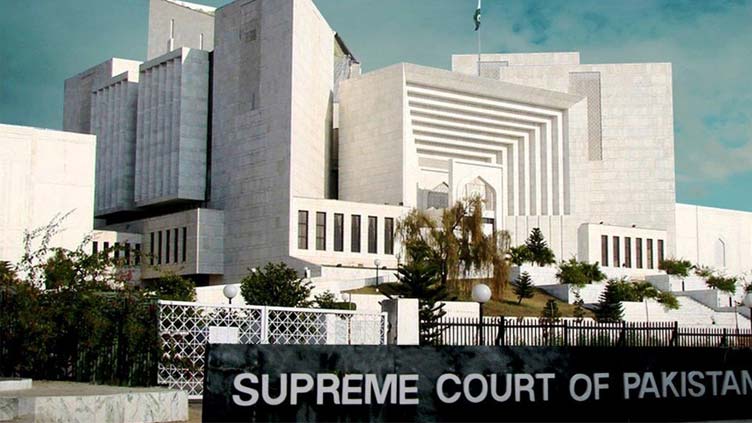SC constitutes larger bench to hear reference seeking interpretation of Article 63(A)

Pakistan
Arif Alvi on Sunday approved the filing of the presidential reference.
ISLAMABAD (Dunya News) – Supreme Court of Pakistan has constituted a larger bench to hear Presidential reference seeking interpretation of Article 63(A).
Chief Justice of Pakistan (CJP) Umar Ata Banidal remarked that the apex court wants to hear the matter and directed the all respondents to come to court with full preparation during the hearing.
Earlier in the day, government had filed a reference for the interpretation of Article 63A in the apex court after approval of President of Pakistan Dr. Arif Alvi.
The reference has asked that what should be done if party members are clearly involved in horse trading. Also, what will be the legal status of the vote if loyalties are exchanged for money? Whether the deviant members will be disqualified for life due to their economic interests or will be able to contest elections again.
On the other hand, President of Supreme Court Bar Association (SCBA) Ahsan Bhoon on Monday said that reference filed by the government for interpretation of Article 63A is inadmissible as the concerned article is already very clear.
Ahsan Bhoon said that a democratic Speaker should follow constitution of the country but for the first time custodian of the house did not acted as per country’s constitution.
He further said that Article 6 of the constitution should be invoked against such parliamentary people as well.
However, SCBA President clarified that lawyers are neutral but want everyone to pass through a democratic process.
It merits mention that opposition seeks to throw Khan out after rallying thousands of people on a campaign that he has mismanaged the economy, governance and foreign policy but the ruling Pakistan Tehreek-e-Insaf (PTI) has accused joint opposition of horse trading and buying loyalties of the disgruntled members.
No Pakistani prime minister has ever completed his term in office.
The joint opposition consists of major parties such as the Pakistan Muslim League-Nawaz (PML-N) and the Pakistan People’s Party (PPP) – of former prime ministers Nawaz Sharif and Benazir Bhutto – and has a strength of nearly 163 in the lower house.
It needs a simple majority of 172 to prevail in the no-confidence vote.

